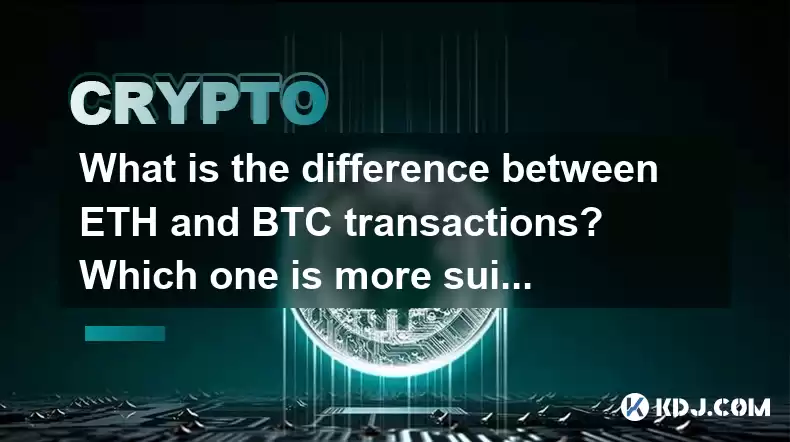-
 Bitcoin
Bitcoin $112400
-1.07% -
 Ethereum
Ethereum $3409
-3.27% -
 XRP
XRP $2.784
-6.60% -
 Tether USDt
Tether USDt $0.9997
-0.03% -
 BNB
BNB $739.3
-2.09% -
 Solana
Solana $158.0
-2.90% -
 USDC
USDC $0.9998
-0.02% -
 TRON
TRON $0.3213
-0.94% -
 Dogecoin
Dogecoin $0.1929
-5.01% -
 Cardano
Cardano $0.6974
-2.82% -
 Hyperliquid
Hyperliquid $36.69
-2.31% -
 Sui
Sui $3.327
-4.80% -
 Stellar
Stellar $0.3672
-5.18% -
 Chainlink
Chainlink $15.65
-3.07% -
 Bitcoin Cash
Bitcoin Cash $525.0
-1.68% -
 Hedera
Hedera $0.2291
-6.00% -
 Avalanche
Avalanche $20.91
-2.96% -
 Ethena USDe
Ethena USDe $1.000
0.00% -
 Toncoin
Toncoin $3.520
-1.12% -
 UNUS SED LEO
UNUS SED LEO $8.968
0.14% -
 Litecoin
Litecoin $105.7
0.26% -
 Shiba Inu
Shiba Inu $0.00001181
-1.79% -
 Polkadot
Polkadot $3.492
-2.08% -
 Uniswap
Uniswap $8.800
-3.10% -
 Dai
Dai $0.9999
-0.01% -
 Monero
Monero $289.9
-3.17% -
 Bitget Token
Bitget Token $4.243
-1.27% -
 Pepe
Pepe $0.00001006
-3.67% -
 Cronos
Cronos $0.1248
-5.68% -
 Aave
Aave $249.7
-2.50%
What is the difference between ETH and BTC transactions? Which one is more suitable for beginners?
ETH transactions are faster (15 sec to few min) than BTC's (10 min to 1 hr), but fees can spike; BTC fees are more predictable. Both prioritize security, but differ in approach.
Apr 28, 2025 at 11:21 pm

When exploring the world of cryptocurrencies, understanding the differences between Ethereum (ETH) and Bitcoin (BTC) transactions is crucial, especially for beginners. Both cryptocurrencies serve as foundational pillars in the blockchain ecosystem, yet they differ significantly in their transaction mechanisms, speed, cost, and overall suitability for new users. In this article, we will delve into the specifics of ETH and BTC transactions, comparing their features and discussing which might be more suitable for those new to the crypto space.
Transaction Speed
One of the most noticeable differences between ETH and BTC transactions is the speed at which they are processed.
ETH transactions are generally faster than BTC transactions. Ethereum's blockchain can process transactions in about 15 seconds to a few minutes, depending on network congestion. This is due to Ethereum's shorter block time, which is the time it takes to mine a new block and add it to the blockchain.
In contrast, BTC transactions take longer to process. Bitcoin's block time is approximately 10 minutes, which means that transactions can take anywhere from 10 minutes to an hour to be confirmed, depending on the number of confirmations required by the recipient or the platform.
For beginners, the faster transaction times of ETH can be more appealing, as it allows for quicker access to funds and less waiting time during transactions.
Transaction Costs
Transaction fees are another critical aspect to consider when comparing ETH and BTC. These fees are paid to miners or validators who process and verify transactions on the blockchain.
ETH transaction fees can vary widely, often depending on network congestion. During times of high demand, such as during popular decentralized finance (DeFi) activities, fees can spike significantly. However, with the introduction of Ethereum 2.0 and layer 2 scaling solutions like Optimism and Arbitrum, efforts are being made to reduce these costs.
BTC transaction fees are typically more predictable but can still fluctuate based on network demand. Bitcoin's fee market is designed to prioritize transactions with higher fees, which can lead to higher costs during peak times. However, the average fee for a BTC transaction is generally lower than that of ETH, especially outside of peak periods.
For beginners, the predictability of BTC fees might be more comforting, although the potential for lower fees with ETH, especially with future upgrades, could also be attractive.
Security and Decentralization
Both ETH and BTC prioritize security and decentralization, but they approach these aspects differently.
ETH's security is based on its proof-of-stake (PoS) consensus mechanism, which is more energy-efficient than Bitcoin's proof-of-work (PoW) system. Ethereum's transition to PoS with Ethereum 2.0 aims to enhance security while reducing the environmental impact. Additionally, Ethereum's smart contract functionality introduces new security considerations, as these contracts can be vulnerable to bugs and exploits.
BTC's security relies on its PoW consensus mechanism, which has proven to be robust over the years. The high computational power required to mine Bitcoin makes it extremely difficult to attack the network. Bitcoin's simplicity and focus on being a store of value contribute to its strong security posture.
For beginners, the simplicity and proven security of BTC might be more reassuring, while the innovative features and potential of ETH could appeal to those interested in exploring more complex blockchain applications.
Use Cases and Ecosystem
The use cases and ecosystems surrounding ETH and BTC are vastly different, which can influence a beginner's choice.
ETH is known for its versatility, primarily due to its support for smart contracts and decentralized applications (dApps). This has led to the creation of a vibrant ecosystem, including DeFi platforms, non-fungible tokens (NFTs), and various other blockchain-based services. For beginners interested in exploring these innovative applications, ETH offers a rich environment to dive into.
BTC, on the other hand, is primarily used as a store of value and a means of payment. Its ecosystem is more focused on financial transactions and investment, with fewer applications compared to Ethereum. For beginners looking for a straightforward cryptocurrency to hold or use for transactions, BTC's simplicity and established reputation make it a solid choice.
Ease of Use and Accessibility
For beginners, the ease of use and accessibility of a cryptocurrency can be a deciding factor.
ETH can be more complex to use, especially for those interested in interacting with smart contracts and dApps. Wallets like MetaMask provide a user-friendly interface for managing ETH and interacting with the Ethereum ecosystem, but the learning curve can be steeper for those new to blockchain technology.
BTC is generally easier to use, with a wide range of user-friendly wallets available, such as Coinbase Wallet and Electrum. The process of sending and receiving BTC is straightforward, making it more accessible for beginners who are just starting to explore cryptocurrencies.
For those new to the crypto space, the simplicity and accessibility of BTC might make it a more suitable starting point, while those interested in exploring the broader possibilities of blockchain technology might find ETH more appealing.
Frequently Asked Questions
Q: Can I use ETH and BTC interchangeably for transactions?
A: While both ETH and BTC can be used for transactions, they are not interchangeable. ETH is often used within the Ethereum ecosystem for smart contracts and dApps, while BTC is more commonly used as a store of value and for direct payments. The choice between them depends on the specific use case and the ecosystem you are operating within.
Q: Are there any risks associated with using ETH and BTC for transactions?
A: Yes, there are risks associated with both ETH and BTC transactions. These include the potential for high transaction fees, especially during peak times, and the risk of sending funds to incorrect addresses. Additionally, the security of your private keys is crucial, as losing them can result in permanent loss of funds.
Q: How can I minimize transaction fees when using ETH and BTC?
A: To minimize transaction fees, you can use tools like gas trackers for ETH to find the optimal time to send transactions when fees are lower. For BTC, you can set a lower fee rate, although this may result in longer confirmation times. Additionally, using layer 2 solutions for ETH, such as Optimism or Arbitrum, can significantly reduce fees.
Q: What are the best wallets for beginners to use with ETH and BTC?
A: For beginners, user-friendly wallets like Coinbase Wallet are recommended for both ETH and BTC. For ETH, MetaMask is also a popular choice due to its integration with the Ethereum ecosystem. For BTC, Electrum is a reliable option that offers a good balance of security and ease of use.
Disclaimer:info@kdj.com
The information provided is not trading advice. kdj.com does not assume any responsibility for any investments made based on the information provided in this article. Cryptocurrencies are highly volatile and it is highly recommended that you invest with caution after thorough research!
If you believe that the content used on this website infringes your copyright, please contact us immediately (info@kdj.com) and we will delete it promptly.
- BlockDAG, SEI, Ethena: Top Crypto Performers Under the Microscope
- 2025-08-03 10:50:16
- Bitcoin Blasts Past $119K: How Institutional Adoption and Macro Shifts Fuel the Fire
- 2025-08-03 10:55:16
- Crypto, Grok, and August: Decoding the Latest Trends and Insights
- 2025-08-03 11:10:16
- Crypto, Phishing, and Your Wallet: A New Yorker's Guide to Staying Safe
- 2025-08-03 10:30:16
- Troller Cat Meme Coin Presale Soars: A New King in the Crypto Jungle?
- 2025-08-03 10:30:16
- Grayscale, Altcoin Trust, and Mid-Cap Mania: What's the Deal?
- 2025-08-03 08:50:16
Related knowledge

What is Chainlink (LINK)?
Jul 22,2025 at 02:14am
Understanding Chainlink (LINK): The Decentralized Oracle NetworkChainlink is a decentralized oracle network designed to bridge the gap between blockch...

What is Avalanche (AVAX)?
Jul 22,2025 at 08:35am
What is Avalanche (AVAX)?Avalanche (AVAX) is a decentralized, open-source blockchain platform designed to support high-performance decentralized appli...

What is Polkadot (DOT)?
Jul 19,2025 at 06:35pm
Understanding the Basics of Polkadot (DOT)Polkadot (DOT) is a multi-chain network protocol designed to enable different blockchains to transfer messag...

What is Litecoin (LTC)?
Jul 23,2025 at 11:35am
Overview of Litecoin (LTC)Litecoin (LTC) is a peer-to-peer cryptocurrency that was created in 2011 by Charlie Lee, a former Google engineer. It is oft...

What is Monero (XMR)?
Jul 21,2025 at 10:07am
What is Monero (XMR)?Monero (XMR) is a decentralized cryptocurrency designed to provide enhanced privacy and anonymity for its users. Unlike Bitcoin a...

How to add indicators to Ethereum chart on TradingView?
Jul 19,2025 at 07:15am
What Is an Ethereum Chart on TradingView?The Ethereum chart on TradingView is a visual representation of the price movement of Ethereum (ETH) over a s...

What is Chainlink (LINK)?
Jul 22,2025 at 02:14am
Understanding Chainlink (LINK): The Decentralized Oracle NetworkChainlink is a decentralized oracle network designed to bridge the gap between blockch...

What is Avalanche (AVAX)?
Jul 22,2025 at 08:35am
What is Avalanche (AVAX)?Avalanche (AVAX) is a decentralized, open-source blockchain platform designed to support high-performance decentralized appli...

What is Polkadot (DOT)?
Jul 19,2025 at 06:35pm
Understanding the Basics of Polkadot (DOT)Polkadot (DOT) is a multi-chain network protocol designed to enable different blockchains to transfer messag...

What is Litecoin (LTC)?
Jul 23,2025 at 11:35am
Overview of Litecoin (LTC)Litecoin (LTC) is a peer-to-peer cryptocurrency that was created in 2011 by Charlie Lee, a former Google engineer. It is oft...

What is Monero (XMR)?
Jul 21,2025 at 10:07am
What is Monero (XMR)?Monero (XMR) is a decentralized cryptocurrency designed to provide enhanced privacy and anonymity for its users. Unlike Bitcoin a...

How to add indicators to Ethereum chart on TradingView?
Jul 19,2025 at 07:15am
What Is an Ethereum Chart on TradingView?The Ethereum chart on TradingView is a visual representation of the price movement of Ethereum (ETH) over a s...
See all articles

























































































